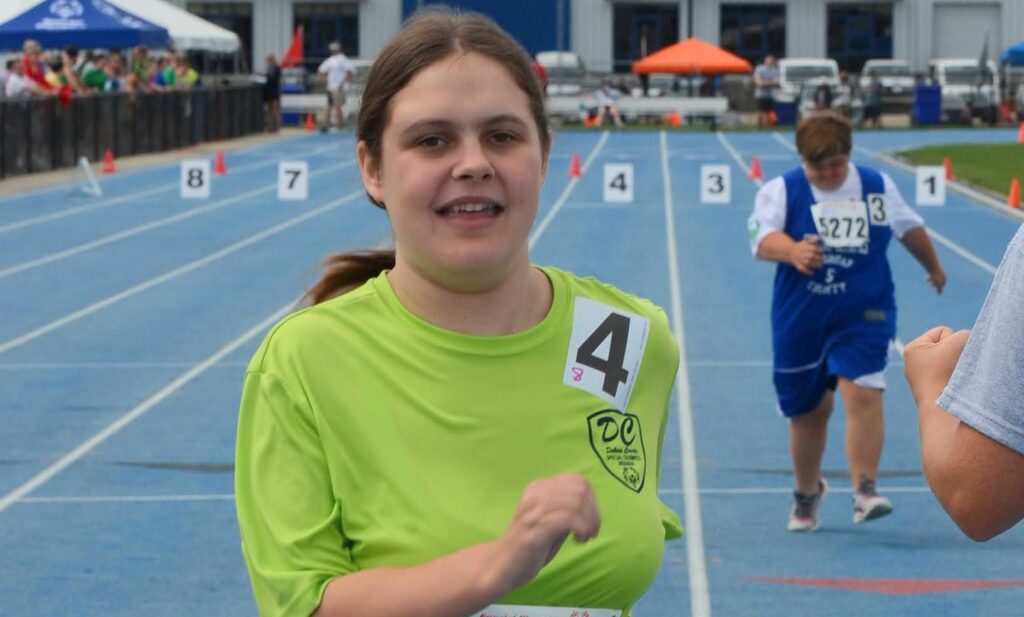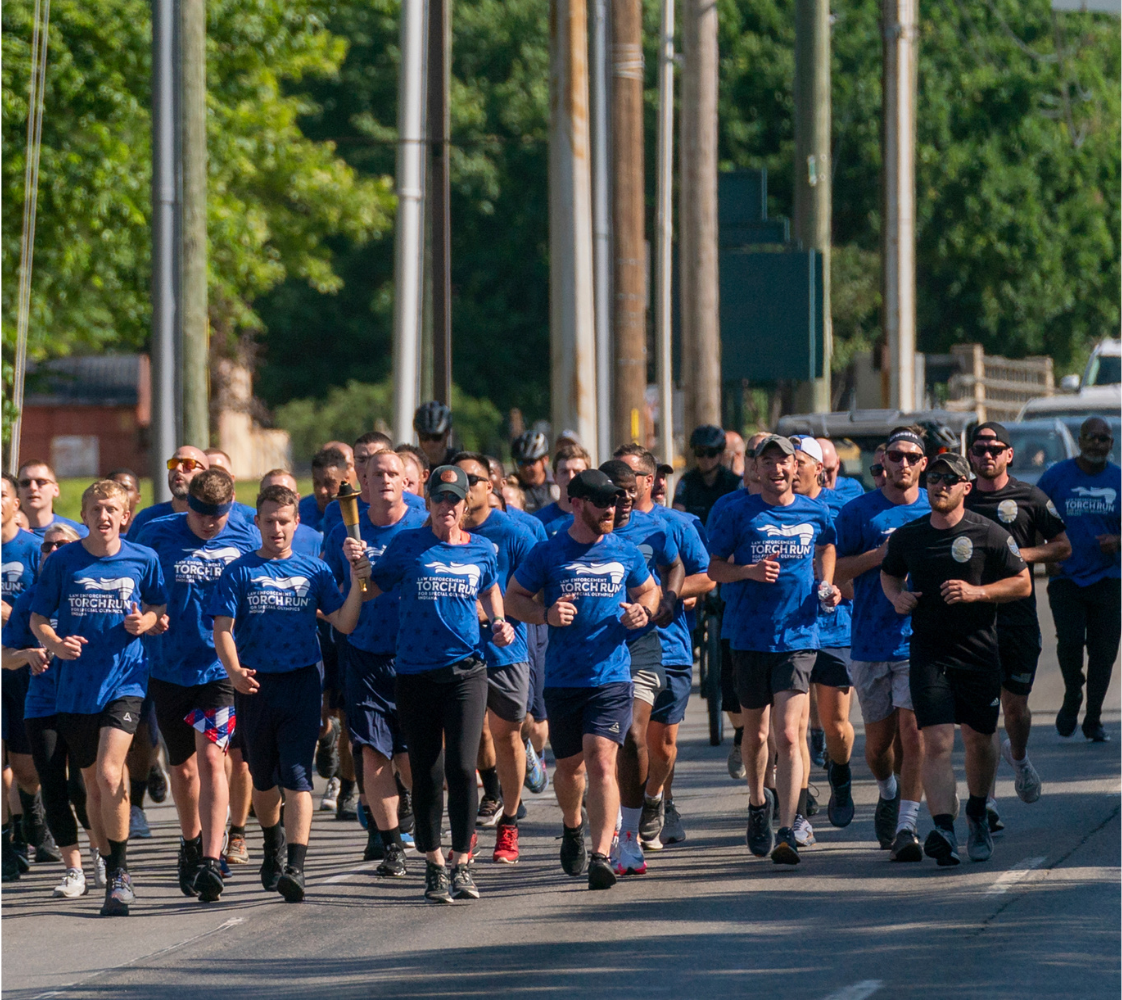Improve Mental Performance for Athletes with Intellectual Disabilities

Athletic performance isn’t just about physical strength and endurance. Mental performance plays a critical role, too.
For Special Olympic Indiana athletes, developing strong mental skills can enhance confidence, focus and overall enjoyment of sports. By using research-backed strategies, athletes can strengthen their minds just like they strengthen their bodies.
Let’s explore some effective, inclusive ways to improve mental performance in sports.
Mindfulness and Relaxation: Train Your Brain for Focus
Mindfulness and relaxation techniques can help athletes manage stress, stay present and improve focus.
Research shows that mindfulness training reduces anxiety and increases emotional regulation, which is crucial for maintaining a positive sports experience (Jekauc et al., 2017). Using simple, structured mindfulness exercises can make it easier for athletes to stay engaged.
How to implement it:
- Use short, guided breathing exercises with clear, simple instructions.
- Encourage listening to calming music or nature sounds before training.
- Incorporate mindfulness into warm-ups, such as focusing on deep breathing while stretching.
Visualization and Role-Playing: See and Feel Success
Visualization helps athletes mentally rehearse skills and movements, strengthening the connection between the brain and body.
For athletes with intellectual disabilities, pairing visualization with role-playing or hands-on demonstrations can enhance understanding and confidence (Cumming & Williams, 2013).
How to implement it:
- Use pictures or videos to help athletes visualize successful performances.
- Walk through scenarios physically while explaining the steps clearly.
- Reinforce positive imagery with verbal encouragement, such as, “Imagine yourself scoring a goal!”
Positive Reinforcement and Encouragement: Build Confidence
Confidence plays a huge role in sports performance, and using structured positive reinforcement can help athletes with intellectual disabilities stay motivated.
Studies show that clear, positive feedback improves skill retention and emotional resilience (Turner & Barker, 2014).
How to implement it:
- Use short, direct praise (e.g., “Great job staying focused!”) to reinforce good behaviors.
- Provide visual or tangible rewards, such as stickers or achievement badges, for effort and progress.
- Celebrate small victories to build confidence over time.
Sleep and Routine: The Foundation of Performance
Sleep is nature’s No. 1 performance enhancer. Good sleep is essential for focus, mood and performance.
Research has shown that a structured bedtime routine helps improve sleep quality, especially for individuals with intellectual disabilities who may struggle with sleep disruptions (Watson, 2017).
How to implement it:
- Set a consistent bedtime and presleep routine with calming activities.
- Reduce screen time before bed and replace it with quiet, relaxing activities.
- Encourage caregivers or coaches to create a sleep-friendly environment.
Goal Setting with Visual Aids: Stay Motivated and On Track
Setting achievable goals helps athletes stay motivated and track their progress. Using visual aids, checklists, and simple language can make goal setting more accessible and engaging (Weinberg, 2013).
How to implement it:
- Use charts or sticker boards to track progress toward small goals.
- Set short, clear goals like, “I will practice passing for 10 minutes today.”
- Break down larger skills into step-by-step achievements.
Strengthening the Mind for a Better Sports Experience
Mental performance is just as important as physical training, especially for athletes with intellectual disabilities. By incorporating mindfulness, visualization, positive reinforcement, good sleep habits and structured goal setting, athletes can develop stronger focus, confidence, and enjoyment in sports.
With the right support and strategies, athletes can unlock their full potential and thrive in their sports.
References
- Cumming, J., & Williams, S. E. (2013). The role of imagery in performance. Journal of Applied Sport Psychology, 25(1), 1-17.
- Jekauc, D., Kittler, K., & Schlagheck, M. (2017). How do athletes experience mindfulness? Sport, Exercise, and Performance Psychology, 6(3), 282-296.
- Turner, M. J., & Barker, J. B. (2014). Examining the effects of rational emotive behavior therapy on performance outcomes in sport. Journal of Applied Sport Psychology, 26(2), 144-156.
- Watson, A. M. (2017). Sleep and athletic performance. Current Sports Medicine Reports, 16(6), 413-418.
- Weinberg, R. (2013). Goal setting in sport and exercise: Research to practice. Journal of Sport Psychology in Action, 4(2), 81-91.
